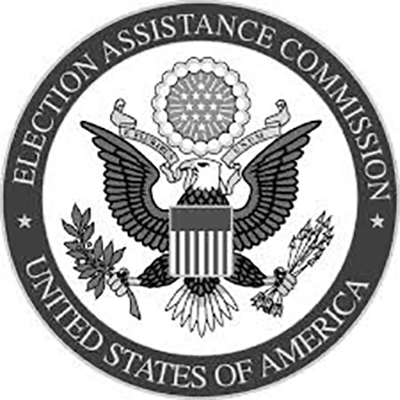EAC Forum Recap: 2016 Election Preparations in Nine Battleground States
On Wednesday, January 6 the U.S. Election Assistance Commission held a roundtable forum in the Washington, D.C.-area discussing 2016 election preparations in nine battleground states. The forum which was also live-streamed and is now available as an archived webcast covered a variety of topics from media relations, emergency planning, social media and technology. Among the participants were:

Merle King – Executive Director, Georgia’s Center for Election Systems, Kennesaw State University
Brian Corley, MPA – Supervisor of Elections, Pasco County, Florida
Honorable Pedro A Cortes – Secretary of State, Pennsylvania
Luanne Cutler – Registrar of Voters, Washoe County, Nevada
Matt Damschroder – Assistant Secretary of State, Ohio
Sandra Juno – Clerk, Brown County, Wisconsin
Honorable Paul Pate – Secretary of State, Iowa
J. Kirk Showalter – General Registrar, City of Richmond, Virginia
Honorable Wayne Williams – Secretary of State, Colorado
Robert Dezmelyk – Moderator, Town of Newton, New Hampshire
While the public may think election season is just getting started, we know election officials from all over the country have been prepping for several months to ensure fair and accurate elections starting in February. We have highlighted a few areas covered in the EAC forum, thanks in part to Electionline, which can serve as a litmus test for your own 2016 preparations — whether you are in a “battleground” state or avoid the headlines most election cycles.
Be Prepared
The overarching theme for the EAC forum was, as suggested by the forum title, be prepared. Several participants stressed having election standards in place to ensure voters are confident in the election process. Consistent procedures help bring elections as close as possible to “perfect”.
J. Kirk Showalter reflected on Richmond being a mid-sized jurisdiction; making it easy to see issues that would concern large localities and small. “In order to have the confidence of the voters you have to look at all your processes and procedures and then apply the adequate resources.”
“We must make sure our processes, procedures, etc. can withstand Election Day as well as scrutiny during and after,” Assistant SOS Matt Damschroder contributed.
SOS Pedro Cortes acknowledged the importance of being consistent with procedures, also adding, “ A good election hinges for the most part on a well informed electorate, properly trained administrators and the poll workers.”
Utilize new and traditional media
Across the board, the importance of using both social media and more traditional media avenues in communicating information to the public was agreed upon. Voters look towards these channels to gather information before, during and after an Election Day. The public expects more interactivity and transparency; social media helps facilitate much of this.
“Today we have 70% or more of society that have a mobile system, whether it’s their phone or iPad. And the expectations are higher. People want it instantly. So it’s no longer always about just getting the information to people, it’s how fast can you get it to them,” SOS Paul Pate remarked during his introduction.
“Clear, concise, continuous communications with all of your stakeholders. That means we don’t have a whole lot of issues with people understanding,” Cortes said. “The communications office is probably the center of what we do.”
Luanne Cutler also advocated for election officials to make the media their partner in getting information out.
Maximizing your voting systems
Panelists noted the increased attention around aging voting equipment, although none anticipated major problems for 2016. Many have and will rely on extra equipment being available, contingency plans and upgrading certain systems ahead of time to assure Election Day success. Sandra Juno’s county also contracts staff through their vendor for onsite support each election. Cutler’s county has poll workers conduct “collaboration tests” more than once a day during Early Voting to ensure accuracy for voters. Others such as Richmond have relatively new systems that were rolled out last year, allowing them time to learn the new system’s workflow.
On the subject of new voting technology, SOS Pate had high praise for electronic pollbooks and their uses;
“One of the best resources I’ve seen in recent times has been the e-pollbooks. We have 70 counties right now that have them. We need all the counties to have it frankly. It’s the one tool both the county auditors can use as a key resource but also the campaigns are tying into it … It frees up resources … It helps us keep the most clean, accurate, up to date (voter registration) list.”
ES&S Senior Vice President of Government Relations Kathy Rogers, who attended the forum, stated “Election Officials are the unsung heroes in the world of elections. These talented, dedicated and passionate people are the bedrock of our nation’s elections. The EAC forum provided a good opportunity for election officials to share best practices and planning tips with their peers.” ES&S is committed to assisting jurisdictions conduct better elections this Presidential Election Cycle. As always, check back to our blog for tips and articles that will help you #BeReady16.